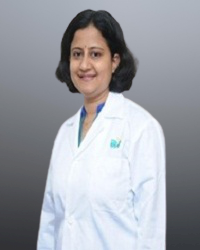Best Rheumatoid Arthritis Doctors in Bangalore
Rheumatoid Arthritis (RA) is a persistent and debilitating autoimmune condition that causes chronic inflammation in the joints. It occurs when the body’s immune system mistakenly attacks the synovium, the tissue lining the joints, leading to pain, swelling, and eventually damage. This form of arthritis affects many joints symmetrically on both sides of the body. Without early diagnosis and effective treatment, RA can also cause damage to organs such as the heart, lungs, and eyes. The risk factors for developing RA include a family history of RA, hormonal factors like high oestrogen and low testosterone levels, early menopause, smoking, obesity, poor oral hygiene and gum disease, and exposure to silica dust and asbestos.
Bangalore has witnessed a significant rise in RA cases largely due to lifestyle factors like hectic work schedules, stress, and dietary habits. However, the city is well-equipped with skilled rheumatism doctors to manage this condition effectively. At Apollo Hospitals in Bangalore, our team of doctors for joint pain ensure that patients receive the most suitable treatment strategies to manage their condition effectively and sustain a high quality of life.







 Call Now
Call Now


